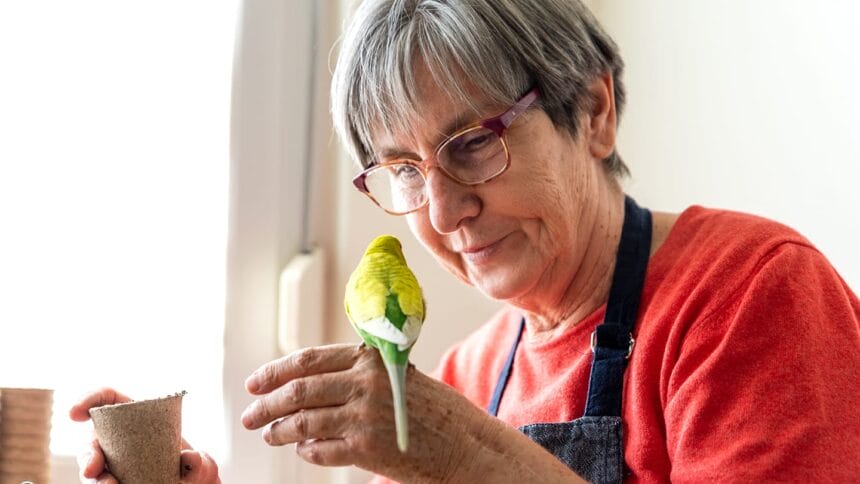
Pet ownership may be linked to slower cognitive decline among adults aging in place, according to a recent study conducted in England.
“Older adults living alone are at high risk for developing dementia,” the researchers wrote in the study published by JAMA Network Open. “Pet ownership might completely offset the association of living alone with faster rates of decline in verbal memory and verbal fluency among older adults.”
Nearly 8,000 people, whose average age was about 66 years old, were studied using data from the English Longitudinal Study of Ageing. The results showed that people aging in place tend to experience cognitive decline slower when they have the company of pets. Declines in verbal cognition, verbal memory and verbal fluency — all indicators of dementia onset — were all faster among people living alone without pets.
The key, the researchers found, is companionship. Older adults living with a partner, family member or other person tend to experience cognitive decline slower than people living alone. And those older adults living with other people experienced similar rates of cognitive decline as those who had pets, according to the study.
The researchers also noted that loneliness is a difficult problem to fix for many older adults, but pet ownership “constitutes a simple change.” A relatively simple fix, they said, “may help in slowing cognitive decline and preventing dementia.”
Some providers have incorporated pets in home care. Pets can provide therapeutic benefits to older adults living at home, such as by comforting or raising seniors’ mood.
Another recent study, conducted by on-demand personal care provider Papa, found that companionship is critical for meeting seniors’ physical, mental and social needs. Loneliness and isolation can lead to worse health outcomes, including greater risk of hospital or emergency department utilization, according to the study.
This article originally appeared on McKnights Home Care




